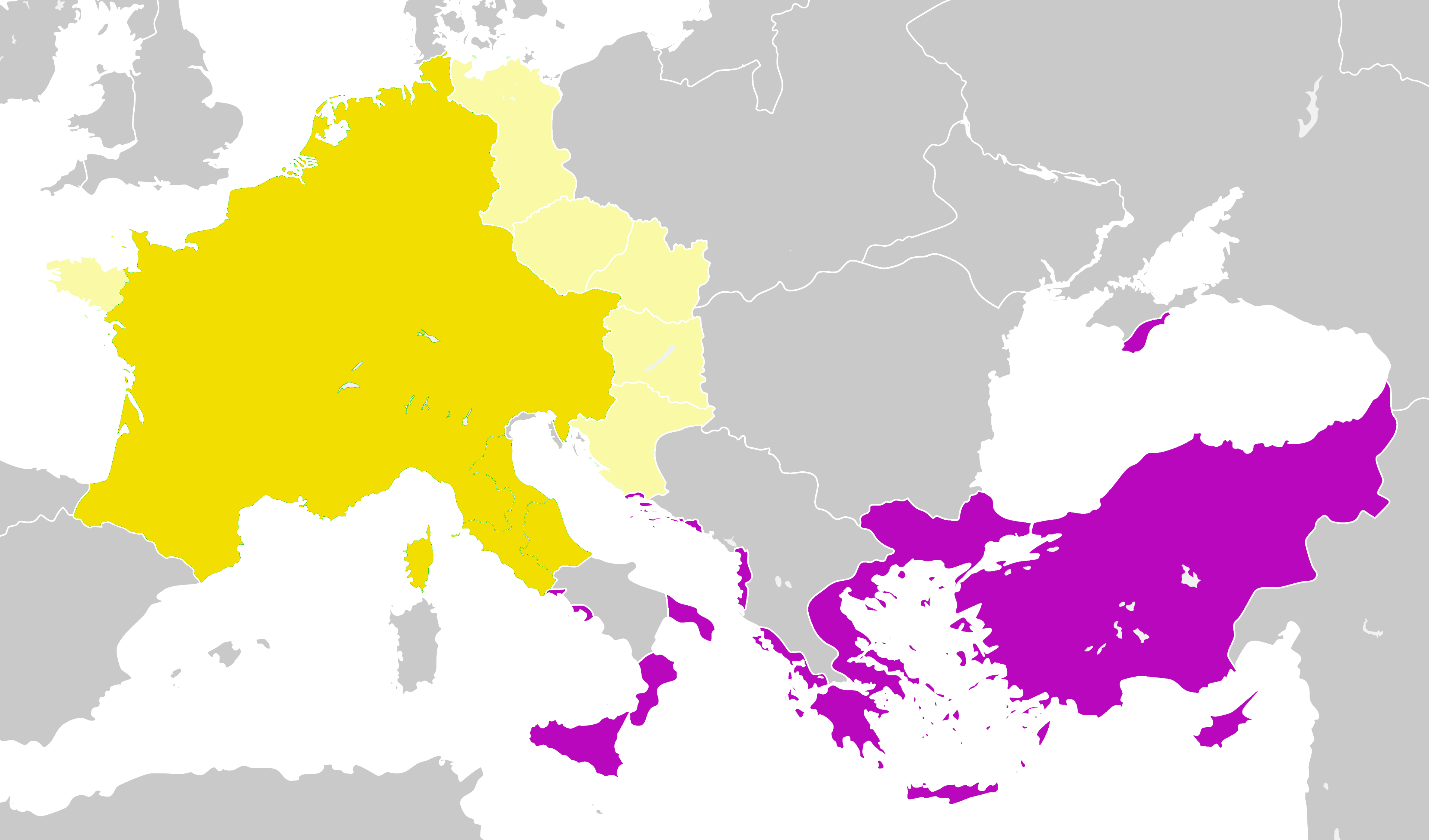John Fredrick Parker
Donor
With no PoDs prior the Leo V the Armenian resuming Iconoclasm in 814, and preferably starting sometime before the death of Theophilos (the last Iconoclast Emperor) in early 842 -- how can the "Roman" Empire have as hard a time as possible in the century following said PoD? We're basically looking for this period to be so bad, that the recovery the empire saw in OTL's 10th Century effectively can't happen, or is at least as curbed as possible.
For example, we already know the Byzantines lose Crete and Sicily during this time to the muslims; could the Duchy of Beneveto take this opportunity to take the Duchy of Calabria from them as well? If the empire did lose all remaining Italian possessions, they'd just be left with Anatolia, Thrace, and the Hellenic Peninsula (also Cherson) -- is there a way they could lose even chunks of that? For example, could the Bulgarian Empire possibly have expanded their borders to the Peloponese? What if the Rus Siege of 860 had been more successful?
If it helps, I'm trying to see this as part of a world where both the Carolingian Empire and the Abbasid Caliphate do better in the 9th Century compared to OTL. What do you guys think?
For example, we already know the Byzantines lose Crete and Sicily during this time to the muslims; could the Duchy of Beneveto take this opportunity to take the Duchy of Calabria from them as well? If the empire did lose all remaining Italian possessions, they'd just be left with Anatolia, Thrace, and the Hellenic Peninsula (also Cherson) -- is there a way they could lose even chunks of that? For example, could the Bulgarian Empire possibly have expanded their borders to the Peloponese? What if the Rus Siege of 860 had been more successful?
If it helps, I'm trying to see this as part of a world where both the Carolingian Empire and the Abbasid Caliphate do better in the 9th Century compared to OTL. What do you guys think?
